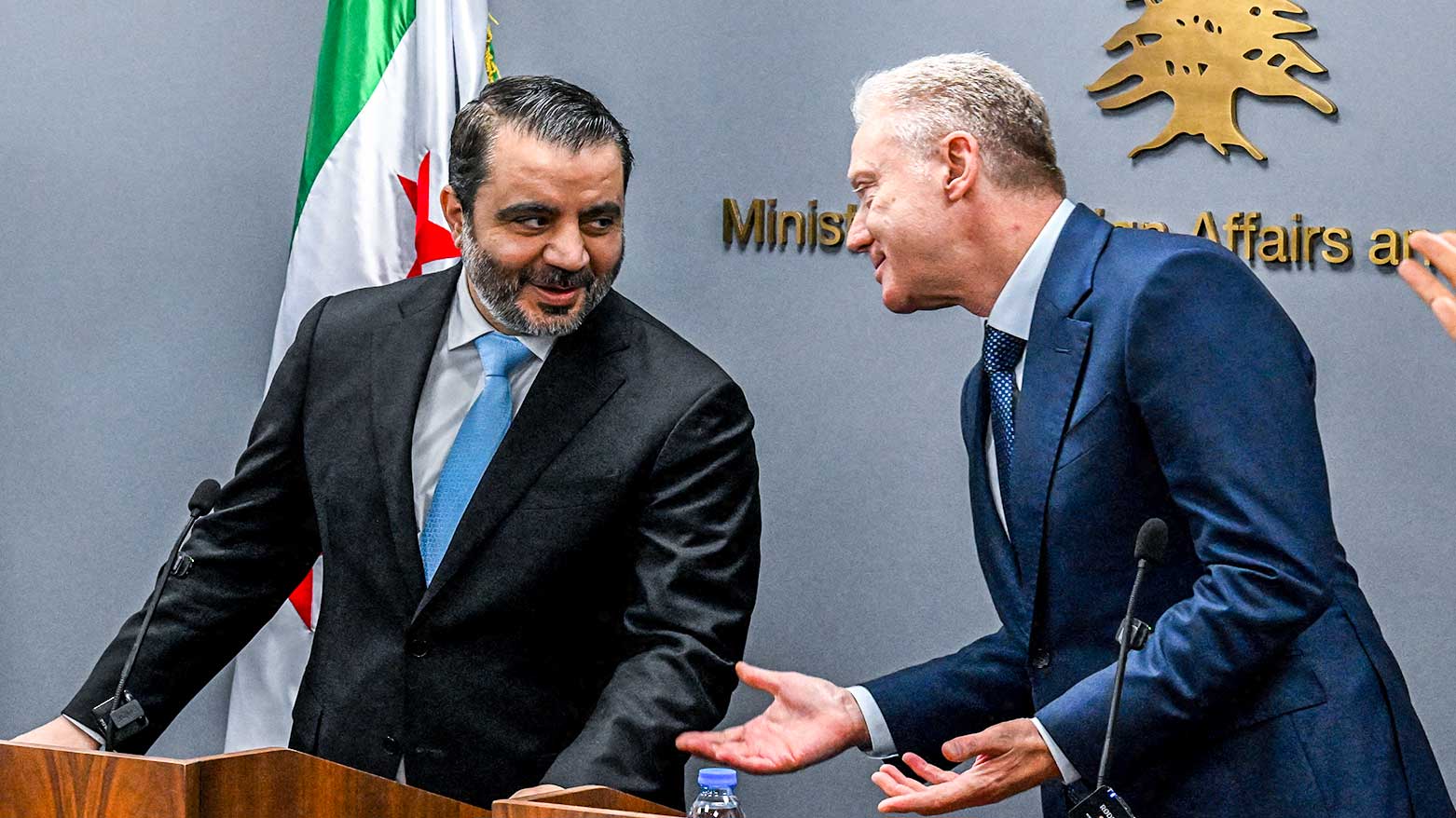Lebanon, Syria Pledge to ‘Turn New Page’ After Decades of Tension and Control
First Syrian ministerial visit since Assad’s ouster signals shift toward mutual respect, addressing past assassinations, refugees, and border security

ERBIL (Kurdistan24) — Lebanon and Syria on Friday announced a commitment to rebuild ties on the basis of mutual respect and non-interference, marking a potential turning point in one of the Middle East’s most fraught bilateral relationships.
The declaration followed a landmark visit to Beirut by Syrian Foreign Minister Asaad al-Shaibani — the first senior Syrian official to visit Lebanon since the ouster of President Bashar al-Assad in December.
“Today we have opened a bright new page in relations between Syria and Lebanon,” Shaibani said, describing the trip as a signal of “a new Syrian approach towards Lebanon,” one that respects its sovereignty and independence after decades of domination by Damascus.
Lebanese President Joseph Aoun echoed the sentiment, saying Beirut sought to “strengthen ties between the two countries on the basis of mutual respect and non-interference in domestic affairs.”
A Painful Legacy
The Assad family’s long shadow looms large over Lebanon’s modern history. For nearly three decades, Syria exercised sweeping control over Lebanese politics, military, and security affairs.
The late Hafez al-Assad first sent troops to Lebanon in 1976 during its civil war, turning his country into the de facto power broker in Beirut.
His son Bashar maintained the grip until 2005, when widespread protests following the assassination of former Prime Minister Rafic Hariri — widely blamed on Assad and Hezbollah — forced a troop withdrawal.
Now, with the Assad dynasty toppled, Lebanon is seeking long-delayed answers about political assassinations and disappearances that occurred under Syrian domination.
Justice Minister Adel Nassar said Beirut had “requested all the information available to the Syrian side on the assassinations that took place in Lebanon,” including Hariri’s killing.
He added that Syria had “shown cooperation” and that Lebanon also sought information on thousands of Lebanese who vanished in Syria during the Assad era.
Prisoners, Refugees, and Borders
During Friday’s talks, Shaibani said progress had been made on the fate of more than 2,000 Syrians held in Lebanese prisons — a population that accounts for roughly a third of the country’s inmates.
A judicial official told AFP that around 700 of them could be extradited pending a new bilateral accord.
The discussions also covered the return of Syrian refugees and efforts to secure the porous 330-kilometer border that has long been a corridor for smuggling and militant movement.
Lebanon hosts over a million Syrians displaced by the 13-year civil war, though the UN refugee agency says nearly 300,000 have returned home in 2025 alone.
“There are plans that we are discussing now, with international support, for the dignified and stable return” of refugees, Shaibani said.
A New Political Reality
The rapprochement comes as Lebanon navigates a delicate post-war transition following its recent conflict with Israel, which left Hezbollah — once the country’s most powerful faction — severely weakened.
The government that emerged from that war has pledged to reassert state authority, tasking the army with disarming Hezbollah, the only militia to retain its weapons after Lebanon’s civil war.
For Syria, the new government in Damascus — led by post-Assad officials — appears intent on restoring regional legitimacy and mending ties with neighbors long alienated by the Assad dynasty’s heavy-handed policies.
In December, Syrian President Ahmed al-Sharaa pledged that his country “would not interfere in Lebanon’s internal affairs,” a statement that now appears to underpin a historic reset between two nations bound by geography, conflict, and a shared but painful past.